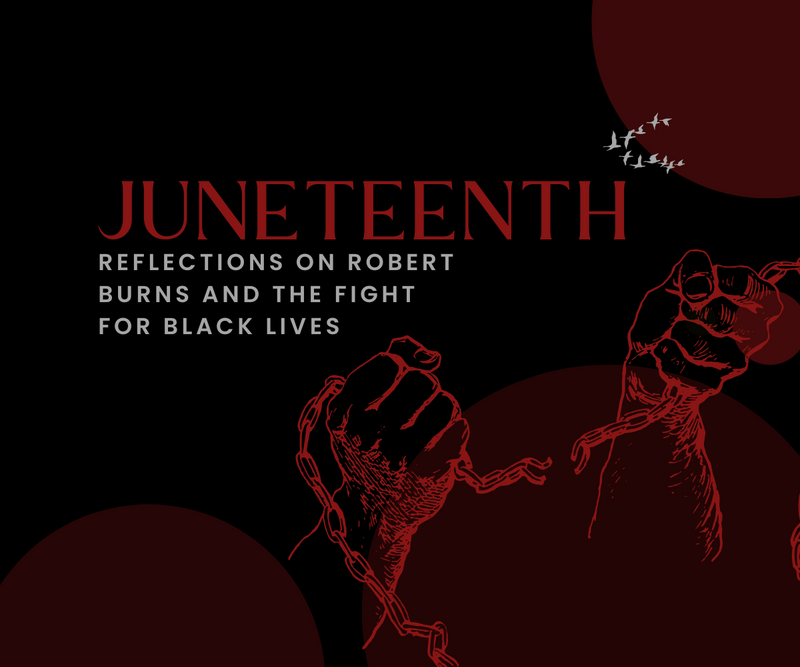Juneteenth
Reflections on Robert Burns and the Fight for Black Lives

Reflections on Robert Burns and the Fight for Black Lives

Juneteenth, celebrated on June 19th, marks a pivotal moment in American history—the day in 1865 when enslaved people in Texas learned of their freedom, over two years after the Emancipation Proclamation.
This day serves as a reminder of the ongoing struggle for justice and equality, echoing the sentiments present in contemporary movements for Black lives. As we reflect on this day, it is worth considering how the works of Scotland's beloved poet, Robert Burns, resonate within this context, particularly as explored by Clark McGinn in his book Burns and Black Lives.
Burns, often hailed as "the people's poet," lived in a time when the transatlantic slave trade was a grim reality. His connection to this history is complex and fraught with moral dilemmas.
Would Burns, in today's world, take a knee in solidarity with the Black Lives Matter movement?
One might argue that his empathy for the oppressed in his poetry would compel him to stand against injustice. Yet, the question remains—did Burns fully grasp the implications of his potential involvement in the slave trade when he contemplated emigration to Jamaica?

Imagining Burns as a slavedriver prompts a deeper inquiry into his intentions. Did he truly understand the suffering he might impose on others? If he had the foreknowledge of the harsh realities of slavery, would that have altered his plans? McGinn’s research reveals that Burns was acutely aware of the moral complexities of his time, especially as discussions around abolition began to gain traction in Scotland during the late 18th century.
As the campaign for abolition intensified, one wonders how Burns’ perspective might have shifted. Would the growing tide of information about the brutal realities of slavery have catalysed a change in his views? Perhaps the very essence of his poetry—a celebration of humanity and compassion—would have inspired him to become a vocal advocate for abolition.
Following his death in 1796, Burns’ legacy played a notable role in the American fight for abolition and civil rights. His works were embraced by abolitionists, who found in his verses a powerful voice against the injustices of slavery. During the Civil War, his words were invoked as symbols of freedom and resistance. The resonance of Burns’ poetry in the struggle for equality underscores the enduring relevance of his message.
Clark McGinn’s exploration of these connections reveals a paradox: while Burns was a literary genius, he was also a product of his time, navigating the ethical ambiguities of his society. His ability to articulate the human condition makes his work a vital part of discussions surrounding social justice today.
As we observe Juneteenth, let us reflect on the intersection of literature, history and social justice highlighted in McGinn’s Burns and Black Lives. Burns serves as a reminder that the fight for freedom and equality is not just a contemporary issue but one deeply rooted in the fabric of our past. His legacy challenges us to confront uncomfortable truths and inspire action against injustice.
In contemplating what Burns might have done had he lived today, we are reminded of our collective responsibility to advocate for the rights of all individuals. As we honour the legacy of Juneteenth, let us strive to ensure that the struggle for Black lives continues to resonate, echoing the spirit of compassion and humanity that Burns so eloquently captured in his poetry.